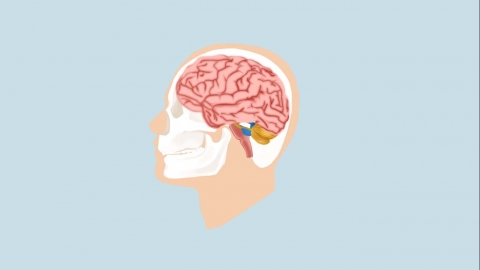What are the causes of basal ganglia injury?
Generally, damage to the basal ganglia may be caused by factors such as aging, hypoglycemia, encephalitis, cerebral thrombosis, Parkinson's disease, and other conditions. Symptomatic management usually involves general treatment and medication. If physical discomfort occurs, prompt medical attention is recommended to avoid delaying treatment. Detailed explanations are as follows:

1. Age-related factors
With aging, blood vessel walls may become fragile and nerve conduction may slow down. These changes can impair the function of the basal ganglia and may be accompanied by symptoms such as memory loss and slowed reaction time. It is recommended to maintain a healthy lifestyle and ensure adequate sleep to help delay the progression of brain degeneration.
2. Hypoglycemia
Hypoglycemia may result from insufficient anti-insulin hormones, inadequate carbohydrate intake, and other causes. When the brain lacks sufficient glucose supply, neuronal energy metabolism may be impaired, thereby affecting normal function of the basal ganglia. Symptoms may include palpitations, sweating, and irritability. It is recommended to use medications such as glucose and sodium chloride injection, hydrocortisone tablets, and mannitol injection under medical guidance.
3. Encephalitis
Viral or bacterial infection may cause encephalitis. The inflammation may affect brain tissue, including the basal ganglia, leading to neuronal damage and dysfunction. Symptoms may include coma, fever, and seizures. It is recommended to use medications such as acyclovir tablets, ornidazole dispersible tablets, and dexamethasone acetate tablets under medical supervision.
4. Cerebral thrombosis
Atherosclerosis of large arteries may lead to the formation of cerebral thrombosis. A blood clot may block cerebral vessels, causing ischemia and hypoxia in the basal ganglia, which may lead to neuronal injury and dysfunction. Symptoms may include numbness and weakness in the limbs, seizures, and language disorders. It is recommended to use medications such as dicoumarol tablets, aspirin enteric-coated tablets, and rivaroxaban tablets as directed by a physician to alleviate symptoms.
5. Parkinson's disease
Bilateral substantia nigra lesions may cause Parkinson's disease. Degeneration of dopaminergic neurons in the basal ganglia leads to decreased dopamine levels, affecting motor control and coordination. Symptoms include tremors, rigidity, bradykinesia, postural instability, balance impairment, and autonomic dysfunction. It is recommended to use medications such as amantadine hydrochloride tablets, levodopa tablets, and bromocriptine mesylate tablets under medical guidance.
In daily life, maintaining a healthy lifestyle—including balanced nutrition, moderate exercise, and sufficient sleep—is also beneficial for delaying brain degeneration.
References
[1] Liu HJ, Weng ZQ, Chen DK, et al. The role of the basal ganglia in behavioral response inhibition [J/OL]. Progress in Physiological Sciences, 1-14 [Accessed 2025-03-20].
[2] Ren WX, Liu Y, Wu QF, et al. Research progress on the correlation between S100B protein and Parkinson's disease [J]. Journal of Medical Research, 2023, 52(03): 22-26.





